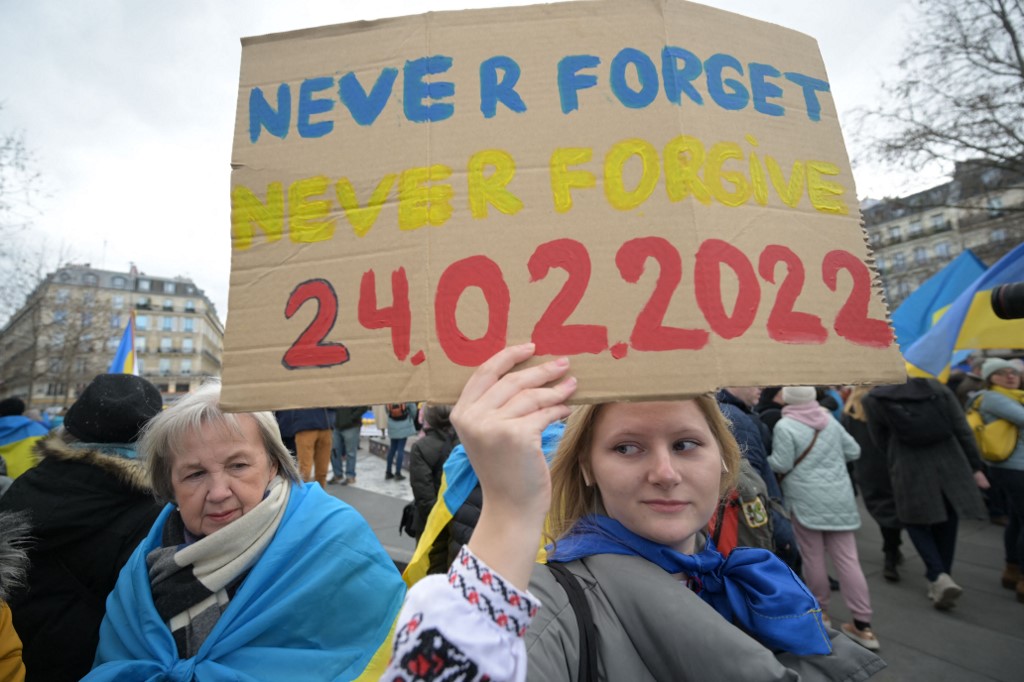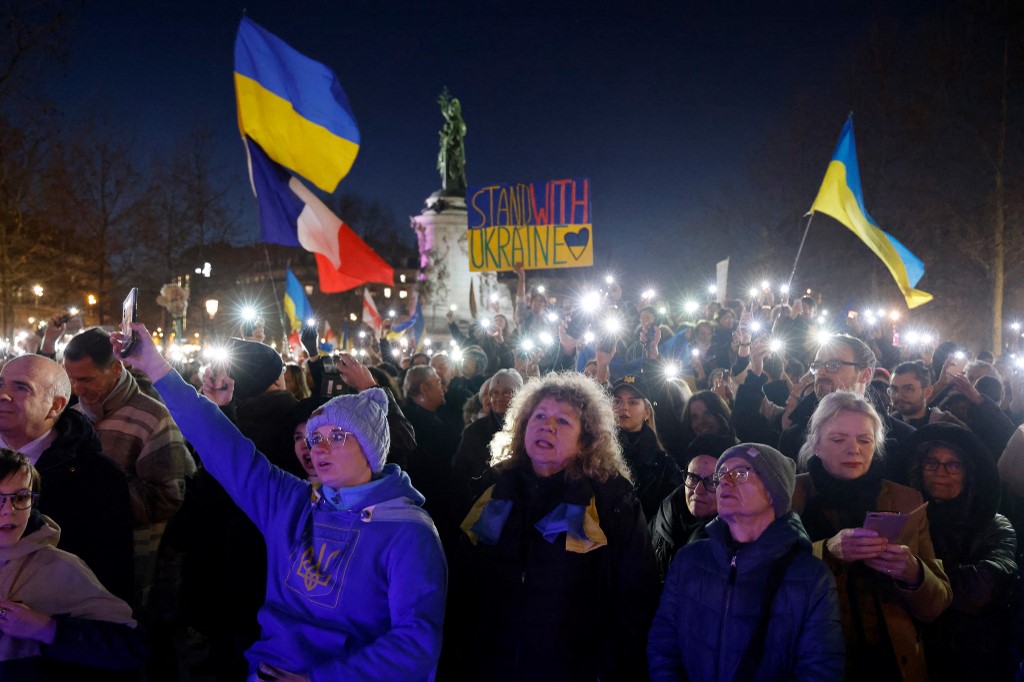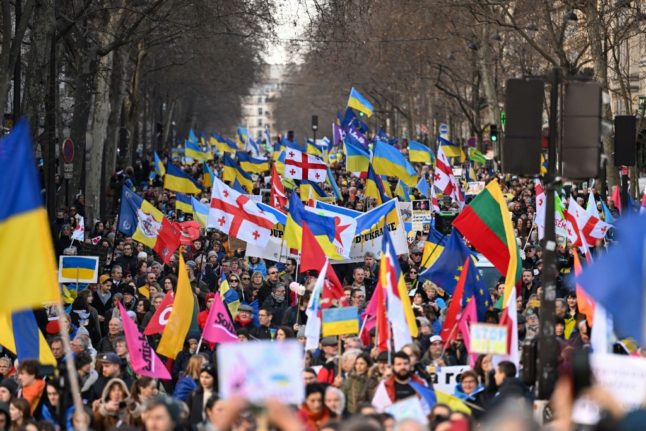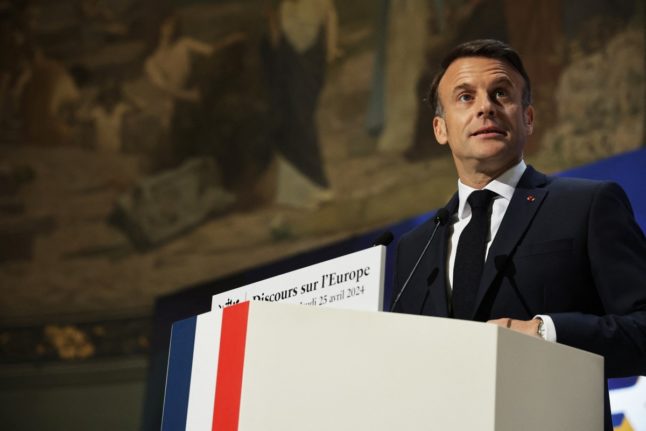Several hundred people sang Ukraine’s national anthem at Place de la Republique in Paris before Ukrainian children dressed in traditional costume led a procession.
Hand on his heart, 73-year-old Volodymyr Kraftchenko, who fled Ukraine a year ago, condemned “those who violated our land and our rights”.

There were also protests in Berlin, where about 10,000 people braved the falling snow to call for negotiations with Moscow rather than weapons deliveries to Ukraine.
On Friday, thousands of protesters across Europe marched against Moscow’s invasion of Ukraine.

Leaders around the world weighed in on the one-year anniversary of Russia invading Ukraine, the large majority pledging firm support for Kyiv despite Moscow’s defiance.
President Emmanuel Macron reiterated France’s support for Ukraine. “People of Ukraine, France stands by your side. To solidarity. To victory. To peace”, he tweeted.
People of Ukraine,
France stands by your side
To solidarity. To victory. To peace.— Emmanuel Macron (@EmmanuelMacron) February 24, 2023
On Saturday Macron announced he would visit China in early April, asking Beijing to help “put pressure” on Russia to end the war in Ukraine.
Macron urged Beijing “not to supply any arms to Russia” and sought Beijing’s help to “exert pressure on Russia to ensure it never uses chemical or nuclear weapons and it stops this aggression prior to negotiations”.
On Friday the French president spoke on the phone to Turkey’s leader Recep Tayyip Erdogan, where he said that “pressure on and isolation of Russia must be increased” to force Moscow to “give up” on its attack, according to his Elysee Palace office.
Erdogan has been able to maintain relations with Russian President Vladimir Putin by refusing to join Western sanctions on Russia and ramping up bilateral trade during the war.
The Turkish leader has used his good relations with both Moscow and Kyiv to try and mediate an end to the conflict.
Turkey hosted two early rounds of peace talks and helped strike a UN-backed agreement restoring Ukrainian grain deliveries across the Black Sea.
Erdogan has also repeatedly tried to bring Putin and Ukrainian President Volodymyr Zelensky to Turkey for truce talks. His office said that he called for a “just peace” in Ukraine in a Friday phone call with Putin.



 Please whitelist us to continue reading.
Please whitelist us to continue reading.
Member comments